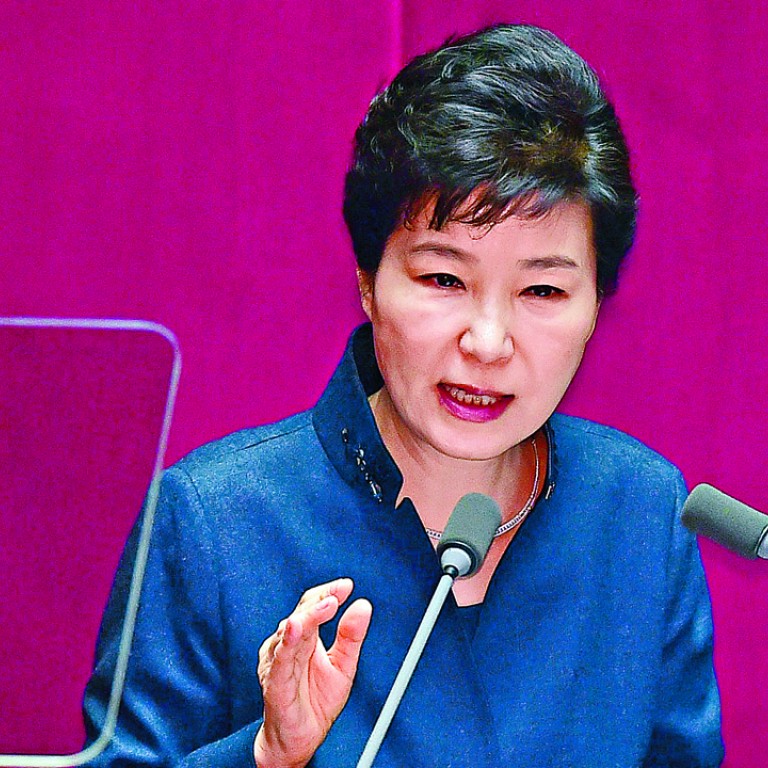
South Korea’s President Park signals shift by invoking threat of ‘regime collapse’ against North Korea
North Korea regularly condemns Park in sexist and violent language, including recently saying that she lives upon “the groin of her American boss”.
Don’t believe in the power that words hold on the edgy Korean Peninsula? Consider, then, how many verbal red lines South Korea’s president stomped across when she let fly at North Korean leader Kim Jong-un yesterday.
Park Geun-hye warned, in the bluntest possible way, of the authoritarian North’s worst nightmare – “regime collapse”. She invoked the North Korean leader’s “extreme reign of terror”. Park even used Kim’s name three times, which she usually avoids.
These words signal a tough new stance from the South in an already anxious stand-off that began with North Korea’s nuclear test last month.
Park’s nationally televised parliamentary address was meant to defend her decision last week to shut down the Koreas’ last major cooperation project, a jointly run factory park in Kaesong.
The brusque tone of Park’s comments directly challenge the powerful, ubiquitous North Korean propaganda machine’s portrayal of the dictators who have run the country since its founding in 1948 as infallible.
Such high-level talk of regime collapse by the conservative president of rival South Korea – and by the daughter of one of the North’s most hated enemies, late South Korean dictator Park Chung-hee – would likely have been received by Pyongyang as fighting words.
The harsh rhetoric cuts both ways. North Korea regularly condemns Park in sexist and violent language, including recently saying that she lives upon “the groin of her American boss”.
Park’s move to shut down Kaesong, which prompted Pyongyang to freeze South Korean assets there and put the park under military control, came in response to the North’s latest rocket launch, which Seoul and Washington see as a cover to test banned missile technology, and just weeks after the North’s fourth nuclear test.

Park vowed stronger measures to make Pyongyang “realise bitterly that it cannot survive with its nuclear weapons development and that [such development] will only speed up regime collapse”.
Her comments won’t be universally welcomed in South Korea, which was for decades a dictatorship that brutally crushed any dissent.
Park’s detractors say suspending operations at Kaesong, along with her apparent willingness to introduce a new, advanced missile defence system from the United States, will only worsen the stand-off with Pyongyang. Liberal lawmakers also say the Kaesong shutdown won’t hurt the North financially because of its deep trade ties with China.
The president’s supporters, however, will see her as finally acknowledging the fact that maintaining the park is the same as pumping money into the North’s nuclear and missile programmes.
As always, the animosity, both between the Koreas and within divided South Korea, also points to a bitter truth at the heart of the divided peninsula. Both authoritarian Pyongyang and democratic Seoul cherish the notion of eventual reunification; each, however, sees that new single Korea with its own government in charge.
This may seem obvious, but the idea is rarely mentioned by high-level South Koreans worried about upsetting the peninsula’s always delicate state of affairs. Hence the shock some will feel about Park’s blunt warning about “regime collapse”.

